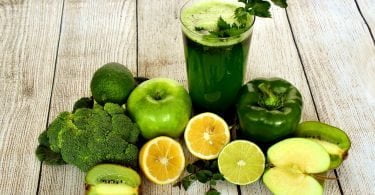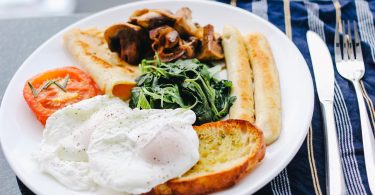A balanced diet comprises five main food groups – but what are they and how much of each should we be eating each day? The main food groups are fruit and vegetables, starches, protein, dairy and fats. Here’s how to ensure your diet is balanced and as healthy as possible.
Fruits and vegetables
Most people don’t eat enough fruit and veg every day, but it should make up around a third of the food we eat each day. Eating plenty of fruit and vegetables is the key to good health, as they’re rich in nutrients and fibre.
While we should aim for 5 portions of fruit and veg every day, there’s no limit – the more fruit and veg we eat, the better. A portion is around 80g and it can be canned, dried, fresh, frozen or juiced.
Starches
Starchy foods should make up over a third of your diet, but if we choose whole grain options such as whole grain pasta, brown rice and wholewheat bread, these are higher in nutrients and fibre which are beneficial to our health. Starches are an important element of your diet as they are a good source of energy, so they should be the foundation of your meals.
Protein
Protein is necessary to help the body build muscle and repair itself, and there are various ingredients that contain protein, including meat, fish, eggs and legumes. These protein sources are also a good source of vitamins and minerals, including B vitamins.
Meat and egg yolks are a good source of Vitamin D, but if you follow a vegan diet, it can be hard to get a good source of this nutrient in your diet. In these instances, adding vitamin D supplements into your diet will help to safeguard your intake.
When choosing protein sources, opt for lower fat options, such as lean cuts of meat and mince, as well as meats that are less processed. If you eat fish, aim for at least 2 portions a week and try to make at least one portion an oily fish such as salmon.
Dairy
Dairy from foods such as yoghurt, cheese and milk provides calcium and protein, as well as various vitamins such as Vitamin D. Opt for lower fat options where possible, such as semi-skimmed or 1% milk. If you follow a vegan diet, you should choose fortified non-dairy milks that have added calcium so you don’t lose out on this from your diet.
Fats
While fats are important to our health, it’s important to choose the right types of fats and to use them sparingly in our diets. Healthier fats include rapeseed, olive and sunflower oil, as these are unsaturated, but you can also add healthy fats to your diet through foods such as avocados, nuts and seeds, which are a good source of omega oils that are beneficial to our wellbeing.









